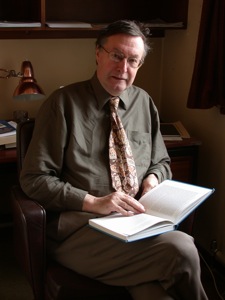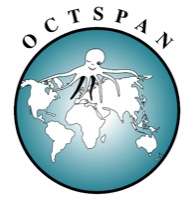OCTSPAN
The Otago Centre for Theoretical Studies in Psychiatry and Neuroscience - brings together the various threads of Robert Miller’s scientific work, including basic neuroscience, theory of psychotic illnesses, including schizophrenia, and educational and other related writings.
Robert Miller
Robert Miller, ever since his teenage years in Sheffield, has had a keen interest in musical composition in both classical and “ragtime” idioms, and also has sometimes been inspired to produce creative “literary” writings. These will be made available at this website, as soon as they are prepared in a manner suitable for public distribution.
The Eye Wink at the Hand - A Modern Tragedy
This section covers my investigations over many years on shortcomings of New Zealand’s mental health care system, now relevant to the Royal Commission on Abuse in Care. Over the next eight months a series of essays - possible chapters for a book - will be released here. Comments, including new evidence, are welcomed.
About Robert Miller, and OCTSPAN:
 Robert Miller was born in Sheffield, England in 1943, and did his schooling there. At the age of seventeen, in the school library he came across a book entitled “Doubt and certainty in science”, the published version of the 1954 Reith Lecture series given by J.Z.Young. This kindled an interest in the workings of the brain, which continues, unabated, to this day. In 1961 he started as a medical student at Oxford University, and commenced serious study of brain physiology, focusing especially on the integration of scientific information from many sources. However, at this period he experienced increasingly severe psychiatric problems, which led, in 1967 to a serious psychotic breakdown. This led to abandonment of his attempt to obtain a medical qualification, and put him out of action, as far as developing any other career was concerned, for about three years. However, in 1969 he started work in the Zoology Department at Glasgow University, and in 1973 obtained his doctorate from Glasgow. After several periods of postdoctoral study at British universities, he emigrated to New Zealand in 1977, as lecturer in the Department of Anatomy and Structural Biology, University of Otago. Since then he has developed the idea, which was just a dream when he was an undergraduate, of creating a library-based approach to the theory of the mammalian brain. The philosophy underlying this approach was outlined in the Preface to his first book (“Meaning and purpose in the intact brain”; Clarendon press, 1981). Since then he has produced many journal articles and three more scientific monographs. One of these, on the theory of relations between neocortex and hippocampus is republished on this website. Another, on the theory of the functional differences between right and left hemispheres (“Axonal conduction time and human cerebral laterality”; Harwood Academic publishers) appeared in 1996. Currently, a work entitled “A theory of the basal ganglia and their disorders” (Taylor and Francis), is about to be published (August 2007). Robert Miller has for many years tried to use his theoretical ideas about normal forebrain mechanisms to shed light on psychosis, and the complex disorder called schizophrenia. As a result he has written many articles on the theory of dopamine-mediated psychosis His largest scientific work to date is an overall theory of schizophrenia, entitled “A neurodynamic theory of schizophrenia and related disorders”. This will soon be made available at this website. Since emigrating to New Zealand, Robert Miller has worked in collaboration with the Schizophrenia Fellowship of New Zealand. Amongst other things, this has led to the writing of autobiographical accounts of his own illness, when he was a young man, and also to the production of an educational booklet, entitled “Straight talking about mental illness (with emphasis on schizophrenia)”. Now in its second edition, this is in use throughout New Zealand. In 1999 Robert Miller, resigned his position in Otago University, continuing research in a free-lance capacity. He retains links with his former department, and has the position of Honorary Fellow. At New Year 2007, the award “Officer of the New Zealand Order of Merit” was given to him “for services to schizophrenia research”.
Robert Miller was born in Sheffield, England in 1943, and did his schooling there. At the age of seventeen, in the school library he came across a book entitled “Doubt and certainty in science”, the published version of the 1954 Reith Lecture series given by J.Z.Young. This kindled an interest in the workings of the brain, which continues, unabated, to this day. In 1961 he started as a medical student at Oxford University, and commenced serious study of brain physiology, focusing especially on the integration of scientific information from many sources. However, at this period he experienced increasingly severe psychiatric problems, which led, in 1967 to a serious psychotic breakdown. This led to abandonment of his attempt to obtain a medical qualification, and put him out of action, as far as developing any other career was concerned, for about three years. However, in 1969 he started work in the Zoology Department at Glasgow University, and in 1973 obtained his doctorate from Glasgow. After several periods of postdoctoral study at British universities, he emigrated to New Zealand in 1977, as lecturer in the Department of Anatomy and Structural Biology, University of Otago. Since then he has developed the idea, which was just a dream when he was an undergraduate, of creating a library-based approach to the theory of the mammalian brain. The philosophy underlying this approach was outlined in the Preface to his first book (“Meaning and purpose in the intact brain”; Clarendon press, 1981). Since then he has produced many journal articles and three more scientific monographs. One of these, on the theory of relations between neocortex and hippocampus is republished on this website. Another, on the theory of the functional differences between right and left hemispheres (“Axonal conduction time and human cerebral laterality”; Harwood Academic publishers) appeared in 1996. Currently, a work entitled “A theory of the basal ganglia and their disorders” (Taylor and Francis), is about to be published (August 2007). Robert Miller has for many years tried to use his theoretical ideas about normal forebrain mechanisms to shed light on psychosis, and the complex disorder called schizophrenia. As a result he has written many articles on the theory of dopamine-mediated psychosis His largest scientific work to date is an overall theory of schizophrenia, entitled “A neurodynamic theory of schizophrenia and related disorders”. This will soon be made available at this website. Since emigrating to New Zealand, Robert Miller has worked in collaboration with the Schizophrenia Fellowship of New Zealand. Amongst other things, this has led to the writing of autobiographical accounts of his own illness, when he was a young man, and also to the production of an educational booklet, entitled “Straight talking about mental illness (with emphasis on schizophrenia)”. Now in its second edition, this is in use throughout New Zealand. In 1999 Robert Miller, resigned his position in Otago University, continuing research in a free-lance capacity. He retains links with his former department, and has the position of Honorary Fellow. At New Year 2007, the award “Officer of the New Zealand Order of Merit” was given to him “for services to schizophrenia research”.
